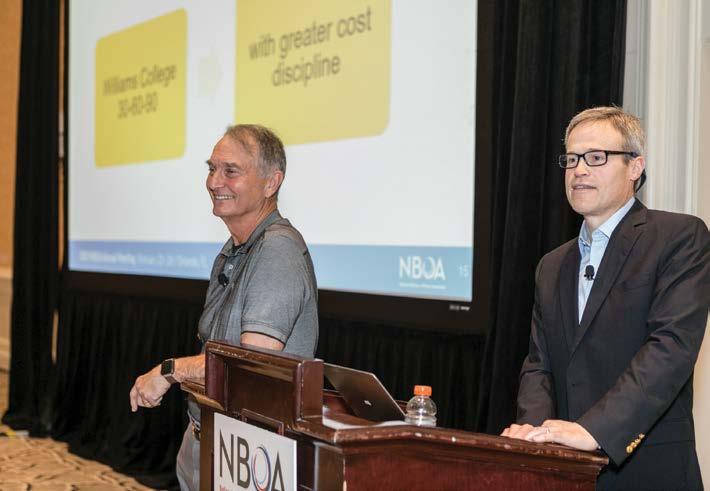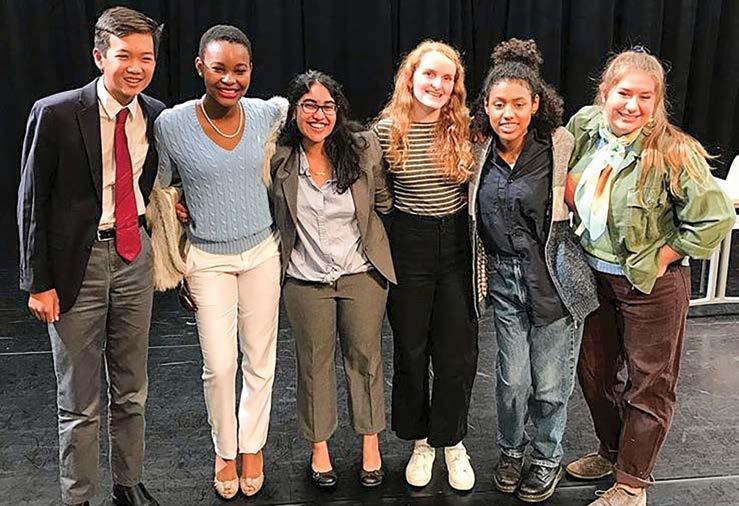
2 minute read
DCD Eighth-Graders Zoom with Filmmaker Henry Singer ’70
By early June, the typical spring fever of DCD eighth-graders was not only in full gear but amplified by the months of quarantining indoors. As the final days of their final school year at DCD drew to a virtual close, the students hopped on Zoom for one of their last Facing History and Ourselves classes. But this time, in addition to their regular teachers (Mr. Thacher, Mr. Buffum, and Mr. Rudnick), they were joined by DCD alumnus Henry Singer ’70.
Mr. Singer had agreed to join the class from his home in London to discuss his latest documentary film, The Trial of Ratko Mladic. An accomplished documentary filmmaker, Mr. Singer has won or been nominated for every major British documentary award, as well as an international Emmy, and his films have been screened at festivals around the world.
Advertisement
His film tied directly to the themes explored in the class, which uses the events leading up to and including the Holocaust as a springboard for examining identity, inclusion, scapegoating, and discrimination. The class encourages the students to consider the choices made by historical figures and draw comparisons to their own experiences and the choices made by themselves and others in today’s world.
Meeting virtually since classes resumed after March break, the Facing History participants had tackled most of the course content, including reading the memoir Night by Holocaust survivor Elie Wiesel. They were able to use Mr. Singer’s film and the Bosnian War in the 1990s as the context for the final topic, “Judgment, Justice, and Accountability,” about the complex decisions faced by societies and victors in bringing justice to those responsible for heinous crimes.
In preparation for the session with Mr. Singer, the students watched excerpts from his film, which examines the International Criminal Tribunal trial of Ratko Mladic, commander of the Bosnian Serb army and one of the principal perpetrators of violence in the Bosnian War. Mladic was charged with a number of war crimes, including genocide, for his actions during the war. Additional historical context was shared by Mr. Rudnick, who lived and worked in Bosnia on democracy-building immediately after the war.
During his Zoom session, Mr. Singer described his career as a filmmaker, provided details about the making of
The Trial of Ratko Mladic, and answered a number of questions from the students. During the hour-long session, Mr. Singer addressed not only issues of justice and accountability from the Bosnian War, but also discussed current events and the public conversation around what justice means for people of color in the U.S. in light of recent cases of police misconduct.
He concluded by sharing recollections of his time at DCD in the late 1960s and early 1970s, when he lived at what is now known as Herrick House, and reflected on the formative role DCD had on his development. Before the pandemic struck, Mr. Singer was scheduled to receive DCD’s Alumni Award in person; while those plans had to be scrapped, our eighth-graders were able to benefit from this extraordinary opportunity to meet Mr. Singer virtually—a memorable closing to their Facing History class!









